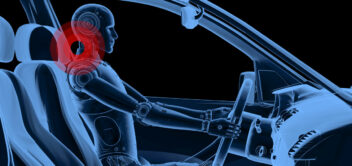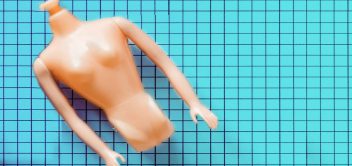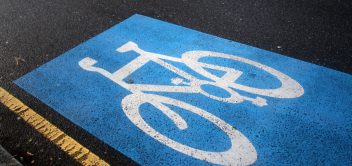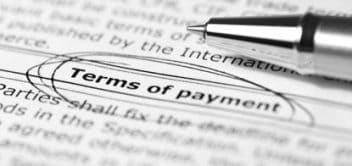General and Special Damages | Here to Help
What are General and Special Damages
The two most common types of damages recoverable when bringing a personal injury action are General Damages and Special Damages.
What are General Damages?
General Damages in Personal Injury Cases for example; a Traffic Accident, are in place to compensate you firstly for the impact the injury has and will have on your life. This includes pain and suffering mild or severe sustained from the injury. This pain can be physical but also physiological. See Claiming for Post Traumatic Stress
The amount awarded will also be based on the impact of your injuries on your new daily life such as short term or a permanent disability or disfigurement. A further consideration for the compensation end figure includes what areas of the body were temporarily or permanently affected. General Damages refer to the amount the injured party may recover for non-financial losses such as:
- Physical pain
- Psychological damage/injury i.e., PTSD
- Lowered quality of life
- Loss of ability to carry out certain functions
- Loss of enjoyment e.g., inability to carry on hobbies or exercise
- Foreshortened life expectancy
- Loss of consortium (love, affection, comfort, companionship, sexual intercourse)
Why it’s important to get Medical Evidence after any type of Injury
Obtaining medical evidence from treating doctors is vital to allow a legal advisor to provide guidance as to what any given case may be worth. The report will outline the injuries sustained in the accident, the severity of the injuries sustained, and it will also outline whether or not the injured party has made a full recovery or is expected to do so.
What if you have sustained more than one injury
When using the new Personal Injury Guidelines to value an injury, a solicitor will look firstly at the value of the dominant injury sustained i.e., the most severe injury. Once the most severe injury has been valued the solicitor will then look at the ancillary injuries sustained, and a small uplift will be given in relation to these injuries.
It is not the case that each individual injury is valued and then they are added together. The calculation will be made on the dominant injury first, then depending on the severity of the other injuries sustained, an uplift will be given.
Read More: What is the Cap on General Damages >
Personal Injury Guidelines >
What are Special Damages?
Special Damages refer to pecuniary loss or financial loss. An injured party must be able to prove all losses under special damages. This can be done by providing receipts for payment and it is important to hold on to all receipts for out of pocket expenses so that it will be possible to claim back these losses. If any specific item cannot be proven then it will not be reimbursed. Special Damages can include:
Future Care and Support
- Occupational Therapy Equipment / Services
- Medication
- Counselling
- Physiotherapy
- Medical expenses
- Neuro-rehabilitation
- Assistive technology
- Housework Assistant / Home Help
- Adapted clothing / Extra clothing
- Future transport
- Adapting A vehicle
- Travel expenses
- Vehicle repairs
- Bike repairs
- Loss of earnings
- Personal property damage such as damage to a mobile phone or damage to clothing the person is wearing at the time of the accident.
Unable to Work – Can I Claim for Loss of Earnings?
If a person in unable to work as a result of the injuries sustained then it is possible to claim loss of earnings in the claim for special damages. In order to calculate the claim for loss of earnings a solicitor will require the precise dates that the injured party was absent from work, copies of payslips and in some cases copy P60’s. It is also necessary to provide a solicitor with details of all social welfare payments received as this will be deducted from any claim for loss of earnings.
Calculating a Claims for Loss – Case Example
John earns €500 per week (after tax). He has been unable to work for 6 weeks as a result of his injury. John has been in receipt of Injury Benefit for the 6 weeks he has been absent from work in the sum of €180 per week.
€500 x 6 – €3,000
€180 x 6 – €1,080
Total Loss of Earnings – €1,920
Calculating a claim for loss of earnings is not always so straightforward, especially in cases where an injured party is unable to return to work at all. In cases where a person has been unable to work for a significant period and they are unsure when or if they will be able to return to work a solicitor will usually obtain reports from a vocational assessor/occupational therapist. This report will outline the injured person’s work history and what, if anything, they are now capable of doing in the future. once the vocational report is received it is usually necessary to obtain a report from an actuary which will detail all losses to date and into the future.
Further complications may arise where the injured party is self-employed.
It should be noted that if the injured party is the director of a company, it is not possible to claim company losses through a personal injury action and legal advice should be sought in relation to recouping company losses. An individual may only claim their own personal loss of income and it can sometimes be difficult to ascertain the difference between a company loss and an individual loss where the injured arty is the owner of the company.
What is Mitigation of Loss?
All injured parties that bring a personal injury claim are expected to mitigate their losses. For example, if a person is fit and able to return to work and chooses not to, they will only be permitted to claim loss of earnings up to the date they were capable of returning to work. Another example would be where an injured party claims that they are still suffering from their injuries but they have not been to see a doctor or undergone any recommended treatment such as physiotherapy.







































 Been Injured in a Car Accident? – What you Need to Know
Been Injured in a Car Accident? – What you Need to Know